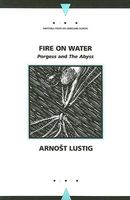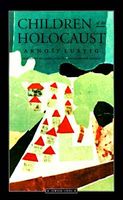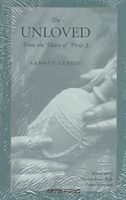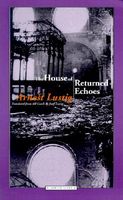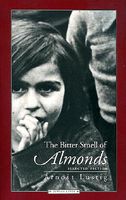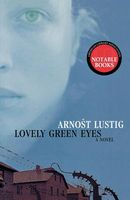- Welcome to FictionDB, Guest
- | My Account
- | Help

Arnost Lustig
Book List in Order: 13 titles
-
-
-
-
Indecent Dreams
- May-1990
- / Literary
-
In these three novellas, Arnost Lustig explores the existential interiors of those at the margin of disaster. A German prostitute assigned to Prague, a girl in a Nazi home for orphans, and a young woman working as a cashier in a movie theater lose th...
-
Street of Lost Brothers
- Jan-1991
- / Literary
-
"Morning Till Evening," "Infinity," "A Man the Size of a Postage Stamp," "Clock Like a Windmill," and other stories reveal the loss, uncertainty, and contradictions of human existence as they were reflected in life under the Nazis...
-
Dita Saxova
- Jan-1994
- / Literary
-
Dita Saxova is an eighteen-year-old concentration camp survivor trying to start a new life in postwar Prague. Living in a special hostel for orphans from the camps, too old to be cared for parentally, too young to be fully adult, too soaked in realit...
-
Children of the Holocaust
- Oct-1995
- / Literary
-
"Children of the Holocaust" is a landmark of Holocaust literature and among the finest works produced since World War II. These profoundly moving stories transcend the gruesome realities of the camps; their strength is that of the human spirit, the i...
-
The Unloved: From the Diary of Perla S.
- Oct-1996
- / General Fiction
-
Winner of the National Jewish Book Award for FictionPerla S. is a beautiful seventeen-year-old girl who, while interred in the Theresienstadt concentration camp, becomes a prostitute. Capturing Perla's voice through a series of diary entries, ...
-
The House of Returned Echoes
- Jul-2001
- / Historical
-
Arnošt Lustig's fiction has always been too close to the facts for comfort. In The House of Returned Echoes, he pays tribute to the life of his father, who died in Auschwitz in 1944. In Prague in the difficult time between the wars, a man fights to ...
-
-
The Bitter Smell of Almonds
- Sep-2001
- / Literary
-
For the first time, Arnošt Lustig's short story collections Street of Lost Brothers and Indecent Dreams and his novel Dita Saxova are brought together in an omnibus edition. As with all of Lustig's works, these tales reverberate with themes of loss ...
-
Lovely Green Eyes
- Apr-2003
- / General Fiction
-
Fifteen-year-old Hanka Kaudersov has ginger hair and clear, green eyes. When her family is deported to Auschwitz, her mother, father and younger brother are sent to the gas chamber. By a twist of fate, Hanka is faced with a simple alternative: follow...
-
Waiting for Leah
- Jun-2005
- / General Fiction
-
"Leah" is set in Theresienstadt, the ghetto created by the Nazis in northern Bohemia as a staging post for the transport of Jews to Poland. The time is September 1944; the war is going badly for the Germans, and they are in a hurry to complete their ...
-
Fire on Water
- Mar-2006
- / General Fiction
-
Contemplations of survival by one of the leading Czech writers of the twentieth century
It occurred to me why I was able to forgive the Italians, but never the Germans. Was it because the Italians never slept on mattresses stuffed with the hai...
